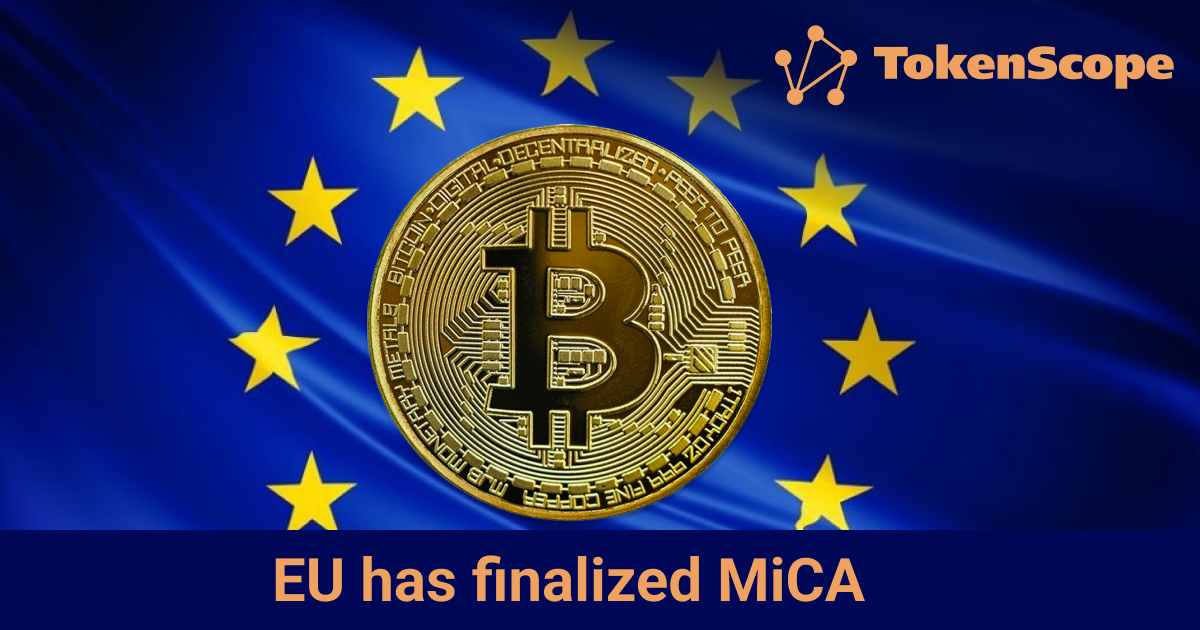
The Proposal for a regulation under Markets in Crypto-assets (MiCA) initially was presented in 2020, and it took more than 2 years for European lawmakers to develop the forthcoming bill. Despite the full text has already been finalized it still must be officially approved by the European Parliament. The new bill is expected to be published in the Official Journal of the European Union in the beginning of the next year, and it will enter into force in 2024.
Alongside with MiCA was completed a separate law to reveal the identity of those who make crypto payments that requires crypto service providers, such as exchanges and custody services to check their customer's identity to prevent money laundering.
As we wrote earlier MiCA should provide a comprehensive and harmonized regulatory framework for crypto-assets that are not already defined as financial instruments or electronic money under Markets in Financial Instruments Directive (MiFID II).
The bill was signed off by members of the European Council and consists of a regulatory framework previously established in June, which received minor further development since then.
MiCA establishes the comprehensive licensing regime for crypto assets service providers (CASPs) – crypto wallets and exchanges. All CASPs will be required to adhere to strict requirements aimed at protecting consumers. They can be held liable in case of loss of investors' funds.
Additionally the proposed legislation imposes capital requirements for CASPs that are expected to prevent threatening events such as was seen with the collapse of the terraUSD (UST), as well as preventing other major liquidity issues.
The final text seems to keep a limit the issuance of stablecoins that reference a non-EU fiat currency. Transactions in stablecoins, which are pegged to the US dollar and other currencies are going to be capped at €200 million per day.
For trading platforms, there will be a requirement to provide white paper and sanctions for the use of misleading information. There will be an obligation to provide consumers with a disclaimers mentioning the risks of losses associated with crypto assets. All CASPs will be obliged to acquire license to operate in the EU and the largest ones will be controlled by ESMA.
The bill has not been supplemented with provisions regarding the regulation of NFTs. However, within the next 18 months, the European Commission may amend it with relevant provisions.
The implementation of MiCA will provide protection against some of the most significant risks posed by crypto-assets such as fraud, scam and market manipulations. However, no matter what laws are adopted, one should not forget about the necessity to conduct a risk assessment in case there is an intention to invest in any of the variety of crypto-assets.